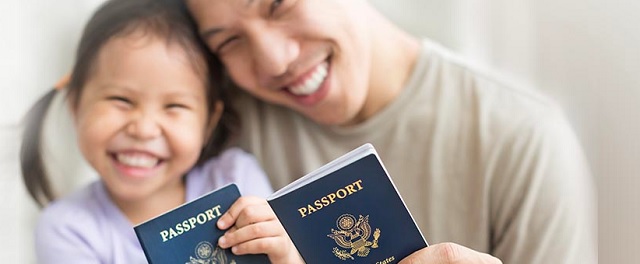If a person has lived in the UK as a refugee for five years, they are eligible to petition for indefinite leave to remain. Those who have been given refugee status will be qualified to apply after their probationary periods are up. Each case will go through a safe return review based on the country's status at the time the application was submitted.
How many refugees reside in the United Kingdom?
According to UNHCR figures, the UK was home to 3,968 stateless people, 83,489 pending asylum cases, and 135 5,912 refugees as of mid-2021. Four out of five refugees remain in the area that caused their displacement, therefore developing nations host the majority of them.
Who or what is a false asylum seeker?
False asylum seekers and undocumented asylum seekers are both untrue. A person has started the legal process of determining their refugee status when they apply for asylum. Everyone has the right to look for asylum abroad. People who do not meet the requirements for refugee protection will not be given refugee status and may even be deported, but this does not necessarily imply that they are fake asylum seekers.
What conditions must be fulfilled to be granted Indefinite Leave to Remain?
The conditions that must be completed to be granted indefinite leave to remain as a refugee are outlined in paragraph 339R of the Immigration Rules.
● You must produce a residence card that has been valid for a continuous five years and hasn't been cancelled or renewed to apply.
● You will need to demonstrate that you do not have a criminal record or any evidence of extremist behaviour that is against British values.
● It is best to present evidence regarding your country of origin to demonstrate that there have been no significant changes and that your continued fear of persecution is, therefore, well-founded.
● The country's circumstances must have changed to the point that being a refugee is no longer necessary. It is advisable to look into any country instructions that the Home Office may periodically publish.
● If you have developed a private and family life in the UK since receiving refugee status, it is crucial to bring up these concerns as part of the human rights component of the claim.
The form that needs to be filled out is called SET(P), or the protection route. You will be required to provide biometric information, such as your fingerprints and digital photos, but you are exempt from the English language proficiency test and the Life in the UK test, and there is no application fee if you are applying to settle as a refugee or person under humanitarian protection.
When and how can a refugee petition for citizenship in the United Kingdom?
Once a person has had Indefinite Leave to Remain for a year, they are eligible to apply for naturalisation in the UK. However, there have been instances where prior refugees were denied citizenship due to the standards for good character.
A family reunion is what?
Do not forget that if you were separated during your forced exile and have been granted asylum or five years of humanitarian protection but do not yet have British citizenship or settled status, your partner or child may apply to join you or remain with you in the UK. Until you have gotten your decision or if you are younger than 18 years old, there is no family reunion provision.
How many refugees have been re-established in the United Kingdom?
Resettlement involves moving refugees from the nation where they first applied for asylum, frequently in the same area as their country of origin, to a third state that has agreed to take them in. For refugees whose life, liberty, health, or human rights are in danger in their place of asylum, or for whom transferring to another nation is their last chance of being reunited with their family, it is a permanent option that can change their lives. Through the Mandate Scheme, the UK Resettlement Scheme (UKRS), the Community Sponsorship Scheme, and the Afghan Citizens Resettlement Scheme, refugees may be relocated to the UK (ACRS).
Are there any refugees or asylum seekers detained in the UK?
A total of 24,497 people entered the detention estate in 2021, a 65% increase from the prior year. The detention estate was housing 1,179 individuals as of the end of December 2021. The Home Office reports that when compared to March 2021, this is up from 1033. The Covid-19 Pandemic must be taken into consideration when analysing these numbers.
What is humanitarian or subsidiary protection?
People who require international protection but do not fit the legal criteria of a refugee under the 1951 Convention may be granted subsidiary protection.
For those who would be subject to the following dangers if sent back to their home country:
● The death penalty or execution;
● Torture, inhuman or degrading treatment or punishment;
● Dangers from an external or internal armed conflict,
The Qualification Directive offers subsidiary protection across the EU.
To comply with this Directive, the UK utilises the legal term humanitarian protection. Additionally, applicants may be granted "discretionary leave to remain," a type of interim authorization that is most likely to last no longer than three years.
What benefits are available to asylum seekers in the UK?
The majority of asylum seekers are unable to work in the United Kingdom and are therefore dependent on government assistance.
Housing is supplied, however, asylum seekers are unable to pick where it is located, and it frequently consists of 'hard to let' homes that other tenants of the council do not wish to reside in.If you have more legal blog than write for us law




.png)



0 Comments